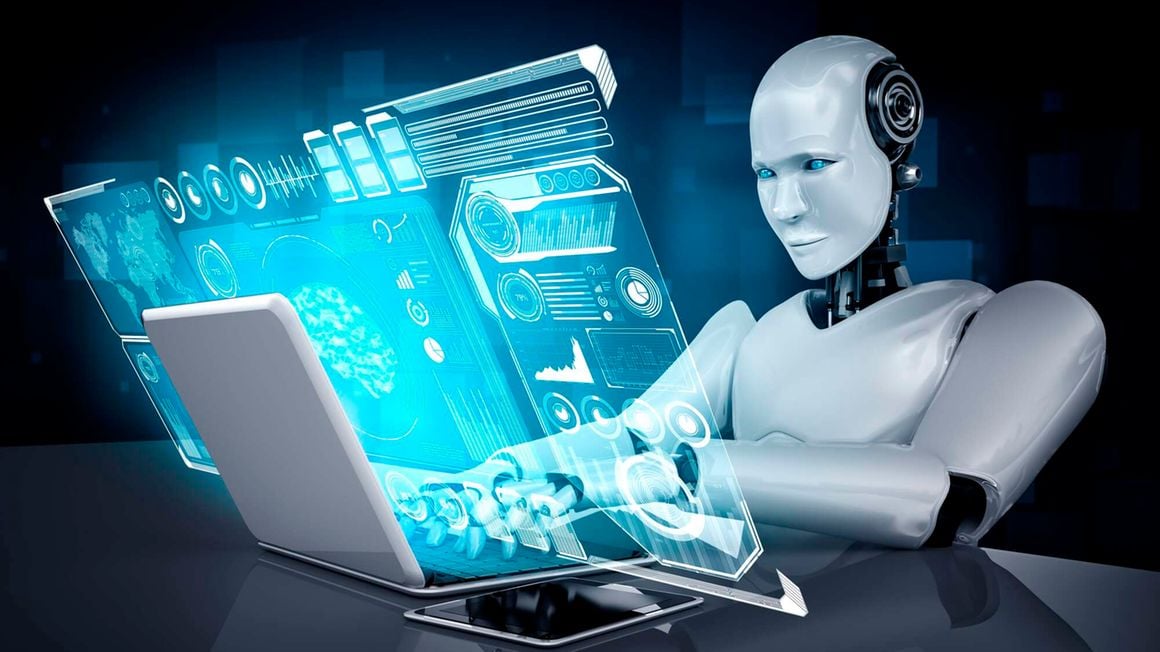
The creativity and controversy around the rise of super chatbots. PHOTO | POOL
For most of the past month, ChatGPT has been all the rage on the Internet, thanks to its astonishing abilities to provide human-quality responses to queries, with mind-bending accuracy.
The chatbot was launched in November by OpenAI, an artificial intelligence research firm, and remains the most discussed innovation of 2022.
With the right prompts, it can perform various tasks, from writing essays, designing artworks, developing recipes and describing objects.
It can also create imaginary situations. Or write fantasy novels.
There is almost an inexhaustible list of things this technology can do. ChatGPT can play the part of a customer, mimic a radio or TV show co-host or a talented expert.
For weeks now, social media has been in a frenzy, with excited and frantic discussions about the chatbot, with some wondering if artificial intelligence is fast replacing human intelligence. And if careers are at risk.
“People are using AI to write stories and make some very good videos. A lot of jobs are at stake,” tweets Kenya Twitter user Droid.
‘‘Online writing will fade as soon as the AI gets more accurate,’’ Bria Omwonga observes.
READ: Artificial intelligence and how it affects every day operations
ChatGPT is the latest version of AIs called GPT (Generative Pre-Trained Transformer)
developed by OpenAI.
Tesla chief executive Elon Musk is one of the founders of OpenAI.
The creativity and controversy around the rise of super chatbots. PHOTO | POOL
In less than a week after its release to the public on November 30, 2022, on a trial basis, interest in the “revolutionary” tool shot astronomically, with more than a million users, according to OpenAI chief executive Sam Altman.
So heavy was traffic on the site at one time that the host suspended access by interested users until a later date.
On trying to access the site, this writer received this message: “Due to a high number of interested users, we are unable to give you access. We will contact you in future.”
Such has been the euphoria and curiosity-driven demand for this chatbot around the world that even developers and programmers worry that new technology may have come to take away their jobs.
The fears have, however, been dispelled by experts such as Chris Heilmann, a techie of more than 30 years.
“ChatGPT is now the amazing new and cool, clean thing that only gives you what you want,” he says, assuring that coding is safe.
Should journalists, academicians and artists be worried?
Even with its immense computational abilities, HR experts say machines lack soft skills such as EQ (emotional intelligence), a factor that makes humans unique and relevant in the workplace.
This is especially so when dealing with colleagues and customers.
‘‘Robots are smart, but they do not have a soul. There is a level of human intervention required [at work] that is indispensable,’’ says May Nyaga, a human capital expert and head of HR at Faulu Microfinance Bank.
AI only works with data input, without which machines’ abilities are limited. While humans rely on preexisting knowledge, they can also learn new things.
They have brainpower that can reason, analyse situations create, improvise and manoeuvre circumstances, abilities that machines do not have.
The creativity and controversy around the rise of super chatbots. PHOTO | POOL
Prince Charles Oduk, an innovator and entrepreneur, says even with the absorption of technology at the workplace, human talent and effort are needed, saying these are irreplaceable.
“When enterprises invest so heavily in technology, the ripple effect is an overreliance on machines at the expense of human contribution,” Oduk says. ‘‘Allow humans to do what humans can do even as you invest in software and other technology at work,” he advises.
Search engines, experts note, have become harder to navigate over the years, with most of them yielding gigabytes of mostly irrelevant content, in addition to spam and ads, for pretty straightforward searches.
This is where ChatGPT comes in as a saviour.
“What ChatGPT really does well is give us the right amount of information for our questions. So if I ask it “how do I change a car battery” I get instructions on how to do that in a few paragraphs,” says Heilmann.
In keeping with technology’s endless capacity to amaze, now hundreds of ChatGPT “experts” have emerged online, promising to help users navigate the site and to make money from it.
Opportunists have invaded the internet, and especially social media, with ‘‘solutions’’ such as how to use ChatGPT to make money, in product design, to ace marketing and to make Twitter better.
READ: Techs that will help make your business to thrive
AI is also not flawless, as most humans have come to nearly believe. OpenAI, for instance, says ChatGPT can return biased responses for queries, thus creating more problems than solutions.
The company says it is ‘‘eager to collect’’ user feedback to improve its system. ‘‘We are learning a lot from ChatGPT and it is going to be a lot better, less annoying and more useful fast,’’ assures Altman.
As technology grows by the day, opening up new frontiers and threatening traditional ones, the way humans work is expected to evolve.
Says Altman: ‘‘There will be scary moments and significant disruptions as we move towards AGI-level systems. This will make ChatGPT look like a boring toy.’’
In computer science, AGI (an abbreviation for artificial general intelligence) is an intelligent system that allows a machine to learn or understand any intellectual task that a human being can. AGI is superior to AI.
→ Jkgitau@ke.nationmedia.com




No comments :
Post a Comment